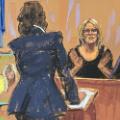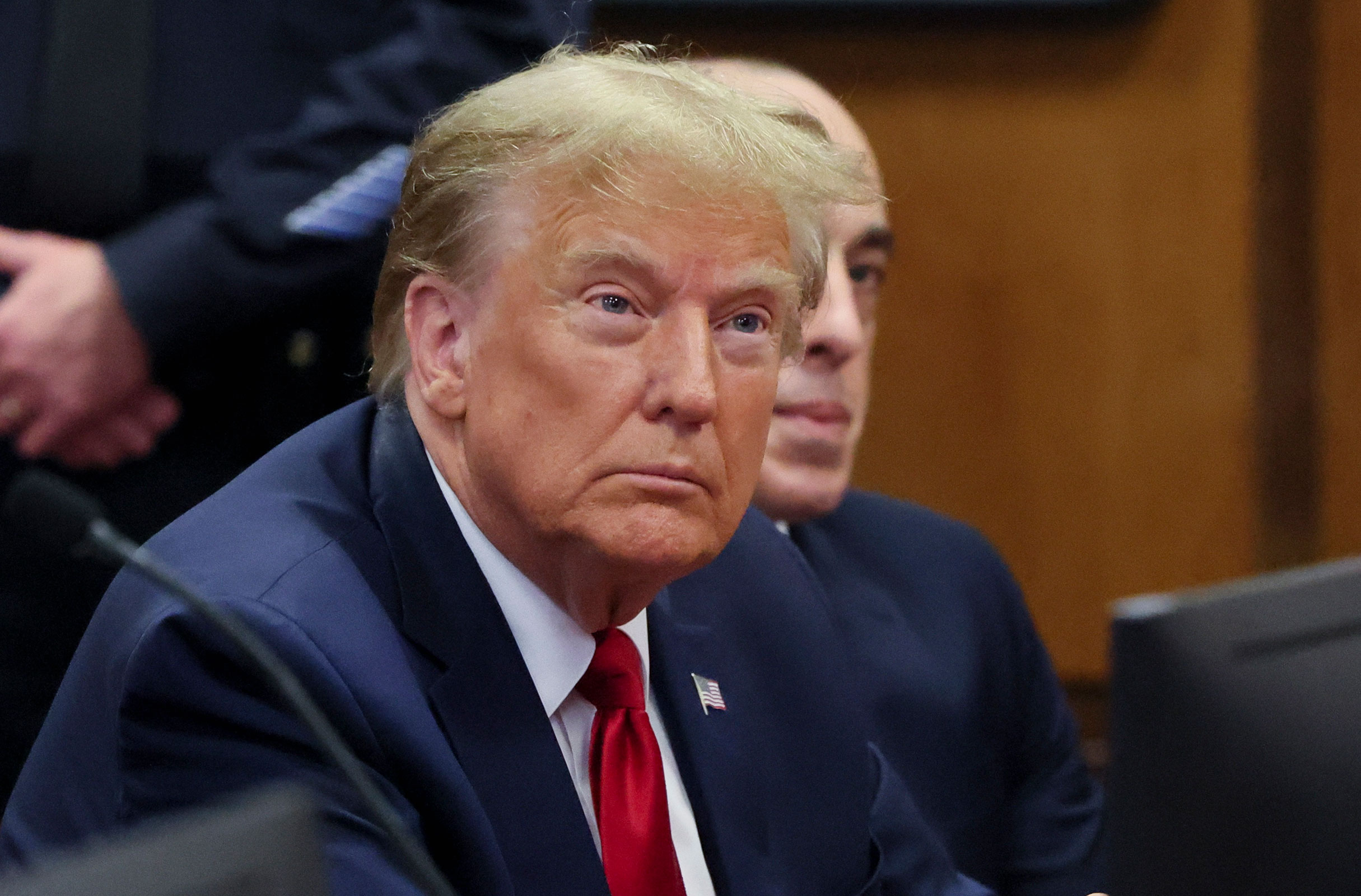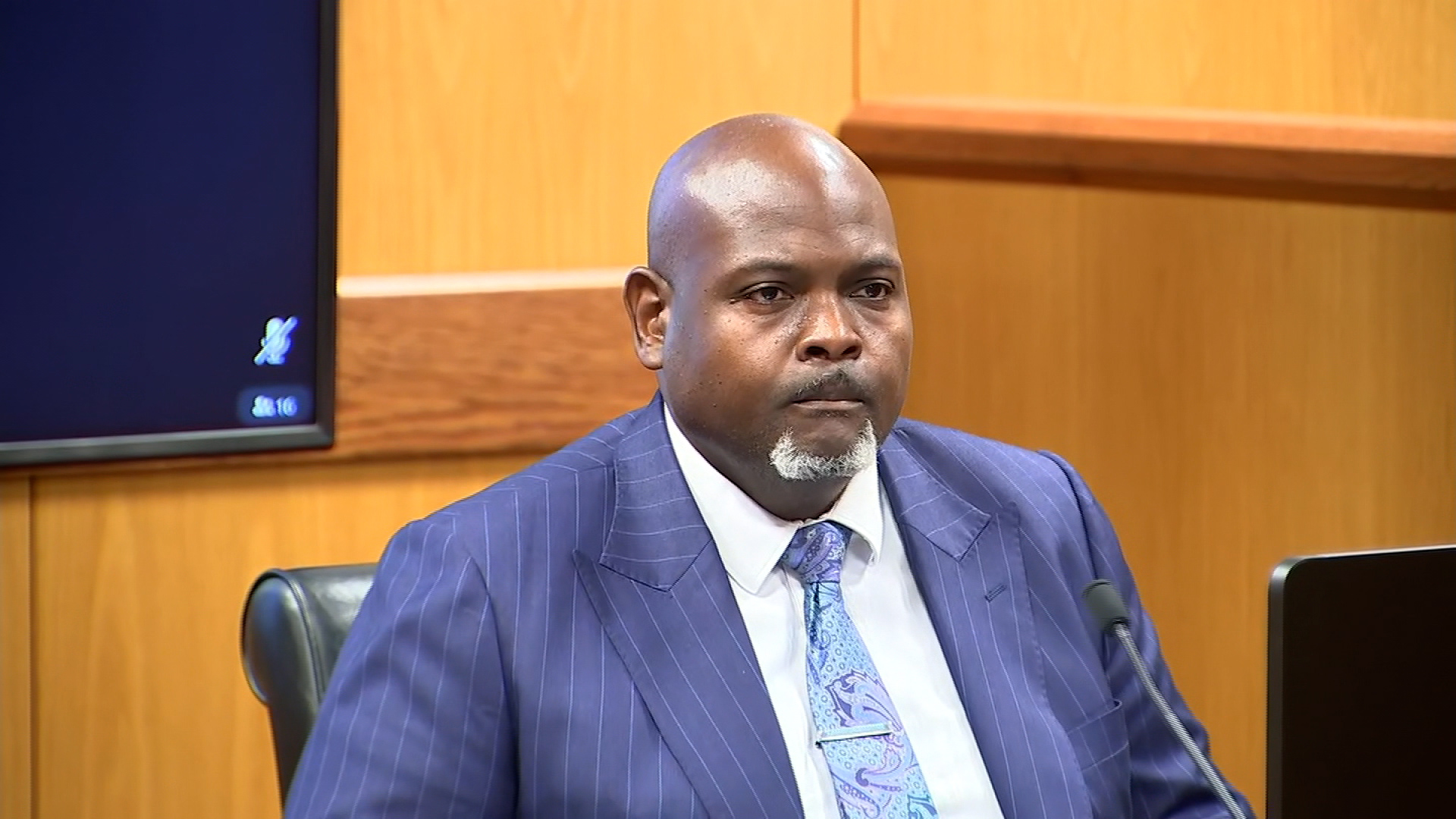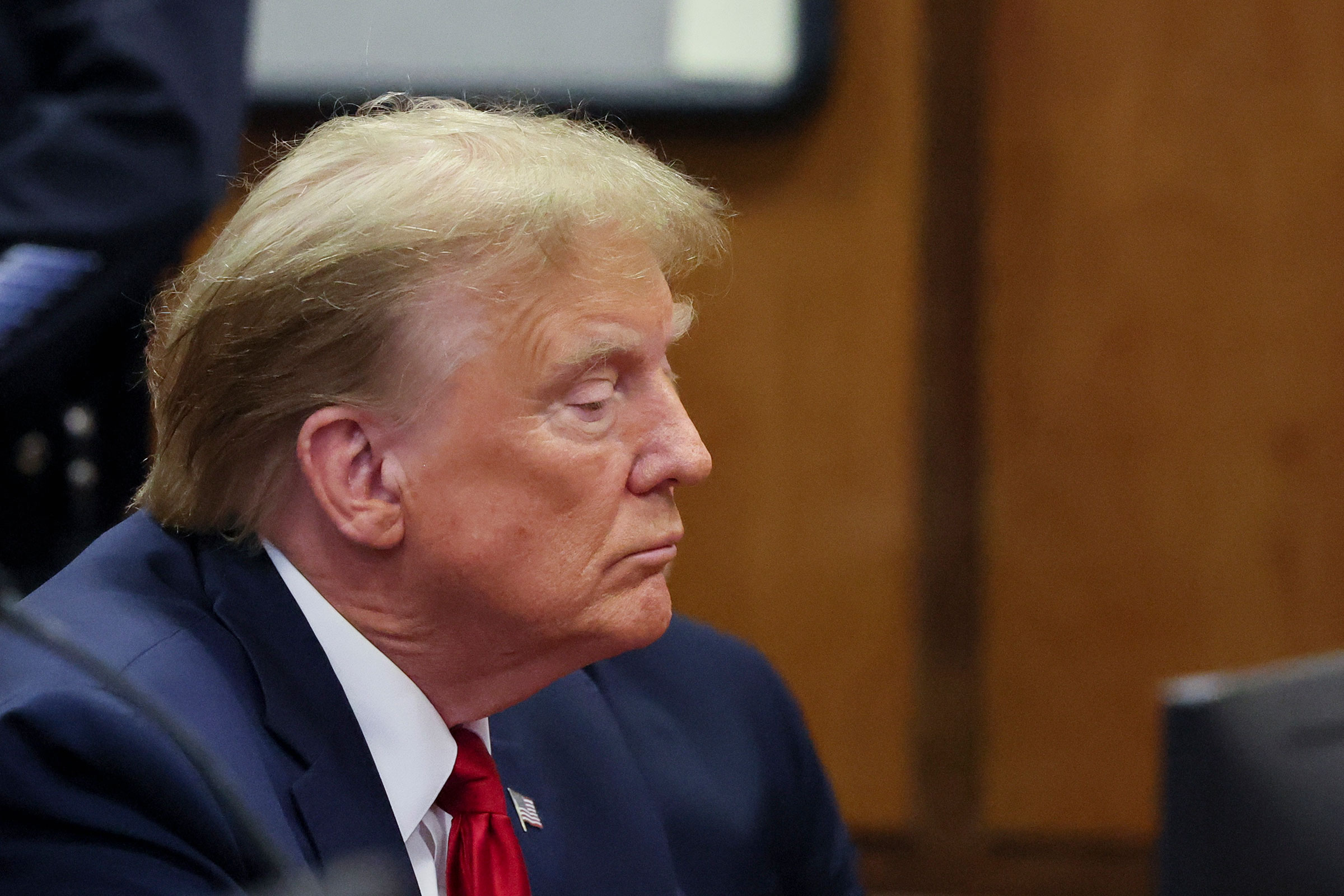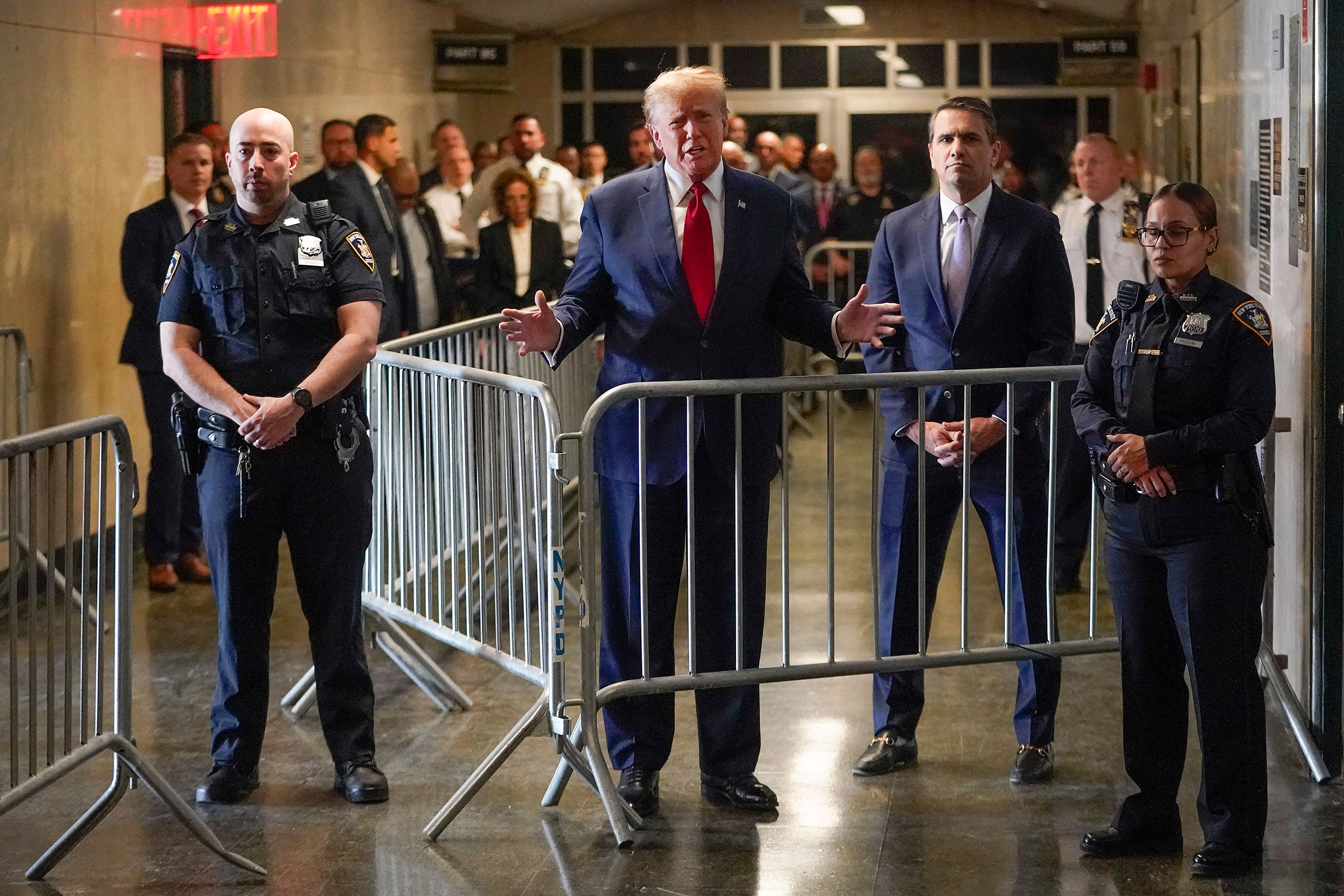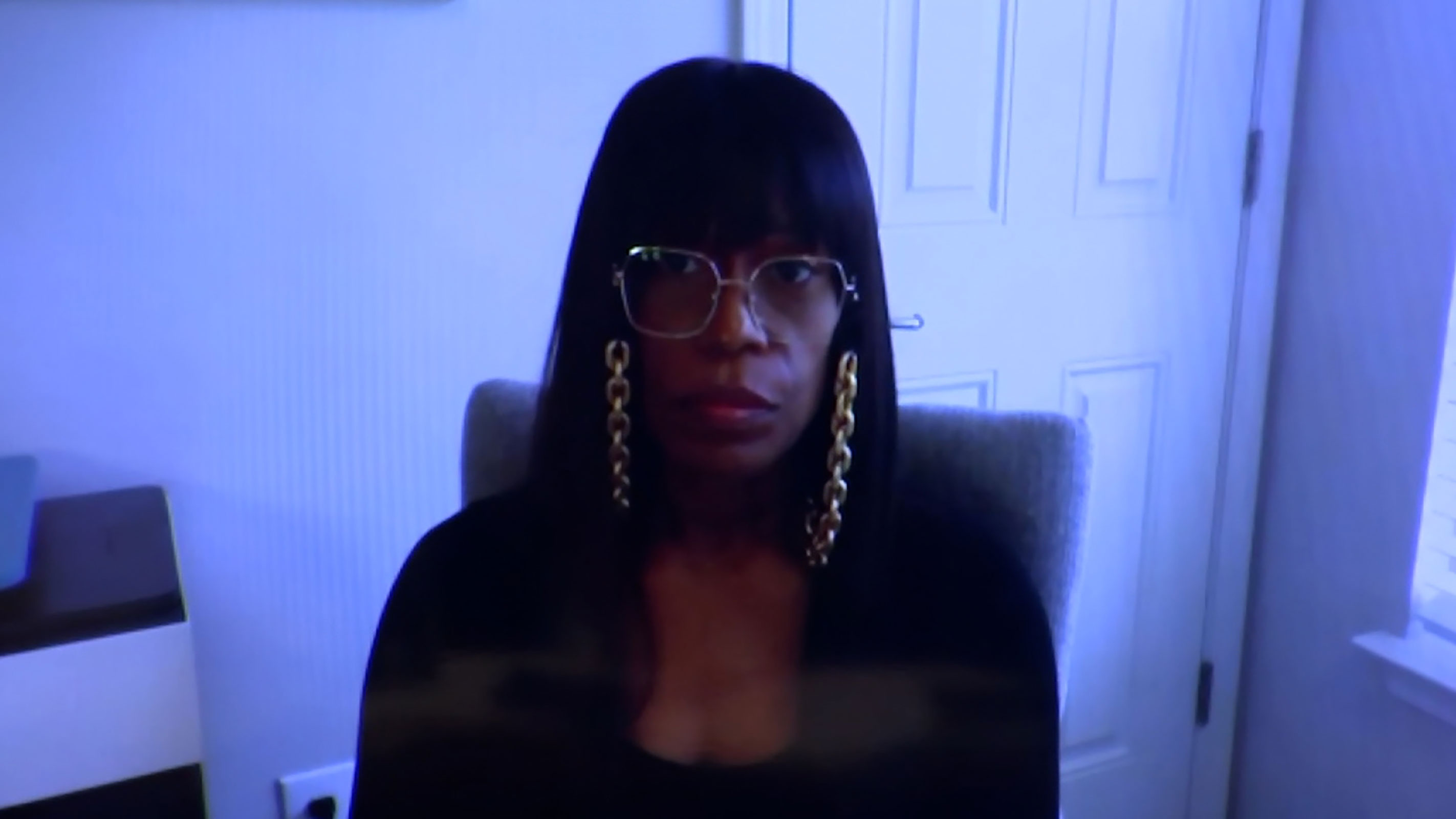
A witness in the hearing over whether Fulton County District Attorney Fani Willis should be disqualified from the 2020 election subversion case said Thursday that the romantic relationship between Willis and her top attorney began in late 2019, undercutting Willis’ claims in court filings about when it began.
“She told me they met at a conference,” in October of 2019, Willis’ longtime friend and former employee Robin Bryant Yeartie testified Thursday.
Yeartie told defense attorney Ashleigh Merchant that Willis and Nathan Wade began a romantic relationship shortly after the conference in 2019, and that the relationship continued into 2022.
Why it matters: Wade said in an affidavit filed in court by the district attorney’s office that he and Willis “developed a personal relationship in addition to our professional association and friendship” in 2022 — after Willis hired Wade as special prosecutor in late 2021.
More on the witness: Yeartie took the stand after Judge Scott McAfee denied a motion to quash a subpoena for her.
Durante Partridge, an attorney for Yeartie, had tried to push back against the need for his client to testify at the hearing, saying she didn’t have any information to provide about Willis’ personal relationship with another prosecutor – the controversy at the heart of Thursday’s hearing.
Defense attorneys in the case previously claimed Yeartie could provide information about Willis and Wade staying together at a residence tied to Yeartie. Partridge said she did not have information about.


